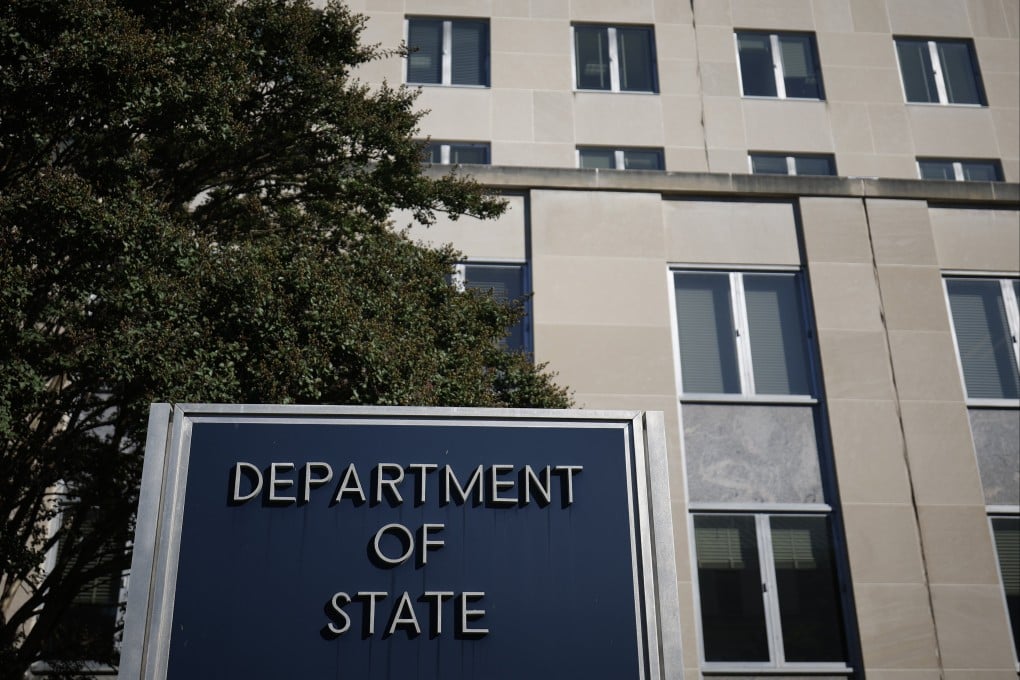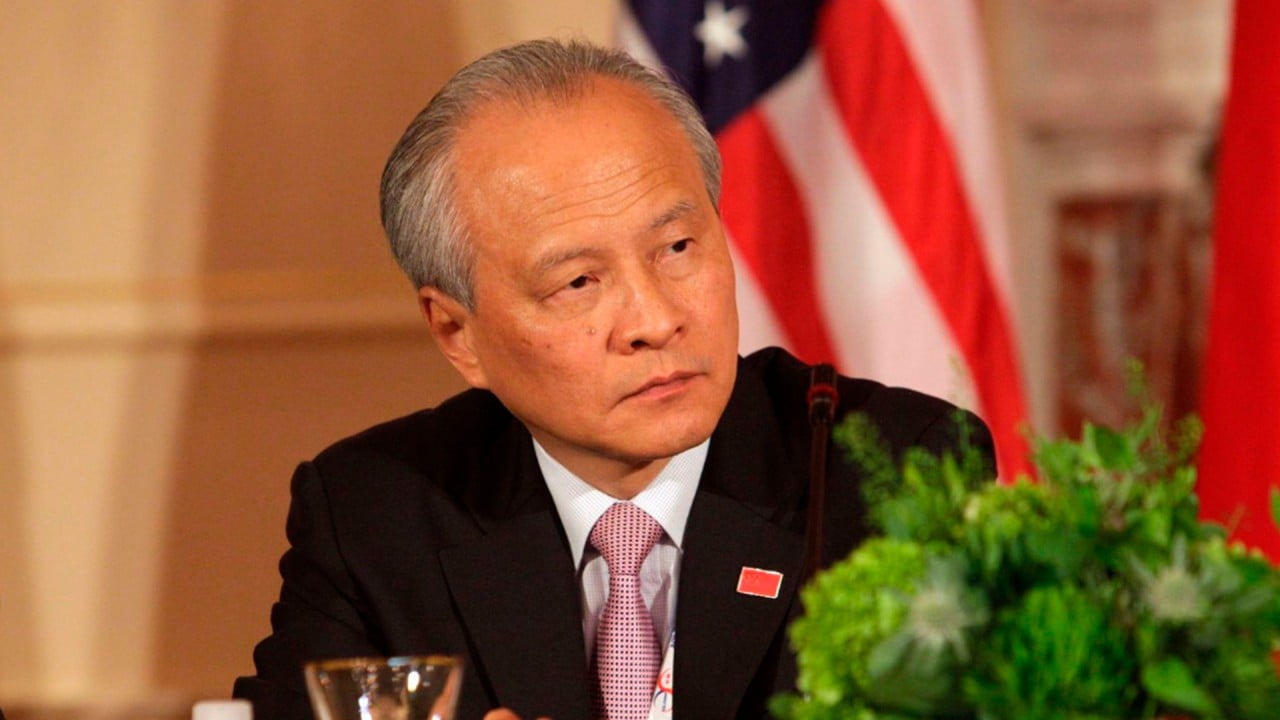State Department Taiwan Independence: A Deep Dive Into The Complex Dynamics
Let's talk about the elephant in the room: the State Department's stance on Taiwan independence. This topic is more than just politics—it's a global chess game with stakes that affect everyone. From the corridors of Washington D.C. to the bustling streets of Taipei, the debate over Taiwan's status is one of the most pressing issues of our time. So, buckle up, because we're diving headfirst into the intricate world of international relations.
Now, you might be wondering, why does this matter? Well, my friend, it matters because Taiwan isn't just another dot on the map. It's a key player in the tech industry, a vibrant democracy, and a symbol of resilience. But here's the kicker: its relationship with China and the U.S. State Department is as complicated as a soap opera, with twists and turns that keep everyone on edge.
Before we go any further, let's set the stage. The U.S. State Department plays a crucial role in shaping America's foreign policy, and its stance on Taiwan independence is no exception. From diplomatic talks to military support, every move made by the State Department has ripple effects that can be felt across the globe. So, whether you're a policy wonk or just someone curious about world affairs, this is a story worth following.
Read also:Paulo Avelinos Exwife A Closer Look Into Her Life And Their Journey
Understanding the State Department's Role in Taiwan's Future
First things first, let's break down what the State Department actually does when it comes to Taiwan. Think of it like this: the State Department is the conductor of an orchestra, making sure all the instruments—the U.S. government, international allies, and even businesses—play in harmony. When it comes to Taiwan, that harmony is more like a jazz improvisation session, where the notes can change at a moment's notice.
What Does the State Department Say About Taiwan Independence?
Here's the deal: the U.S. officially follows a policy called "strategic ambiguity." It's like the State Department's way of saying, "We're not making any promises, but we're definitely not ignoring you either." This means the U.S. doesn't explicitly support Taiwan's independence, but it also doesn't rule it out. It's a balancing act that keeps China on its toes while giving Taiwan a bit of breathing room.
Why Does the State Department Care So Much?
Well, the State Department cares because Taiwan is more than just a strategic ally. It's a linchpin in the global economy, especially when it comes to tech. Think about it: the chips in your phone, your laptop, and even your car might have been made in Taiwan. If Taiwan were to fall under Chinese control, it could disrupt supply chains worldwide. That's why the State Department is all about keeping Taiwan strong and independent—or at least, as independent as possible without sparking World War III.
The Historical Context Behind State Department Taiwan Independence Policies
To really understand the State Department's position, you've got to go back in time. The history between Taiwan, China, and the U.S. is a tangled web that dates back to the end of World War II. Here's a quick rundown:
- 1949: The Chinese Civil War ends, and the Republic of China (ROC) retreats to Taiwan.
- 1950s-1970s: The U.S. recognizes the ROC as the legitimate government of China.
- 1979: The U.S. switches recognition to the People's Republic of China (PRC), but continues to support Taiwan under the Taiwan Relations Act.
- 2020s: Tensions rise as China becomes more assertive, and the U.S. State Department reaffirms its commitment to Taiwan's defense.
See? It's like a political soap opera that's been running for decades. And just like any good soap opera, there are plenty of cliffhangers and unexpected plot twists.
Key Events That Shaped the State Department's Stance
Let's zoom in on some key moments that have shaped the State Department's approach to Taiwan:
Read also:What Kind Of Cancer Did Melanie Olmstead Have Unveiling The Truth
- The Taiwan Relations Act of 1979: This law essentially says, "We won't officially recognize Taiwan as a country, but we'll still sell them weapons and help them defend themselves." It's like giving someone a security blanket without officially admitting they need it.
- China's Anti-Secession Law of 2005: This law basically says, "If Taiwan declares independence, we'll use force to bring them back." The State Department's response? A mix of condemnation and caution, trying not to provoke China while still supporting Taiwan.
- Recent U.S. Military Sales: In the past few years, the State Department has approved billions of dollars in arms sales to Taiwan, sending a clear message to China that messing with Taiwan isn't a good idea.
State Department Taiwan Independence: The Economic Angle
Now, let's talk money. The economic implications of Taiwan's status are massive. Taiwan is a powerhouse in the tech industry, producing everything from semiconductors to smartphones. If Taiwan were to declare independence—or worse, if China were to invade—the global economy could take a major hit. That's why the State Department is so invested in keeping the peace.
How Taiwan's Economy Impacts U.S. Policy
Taiwan's economic prowess gives the State Department leverage in its dealings with China. By supporting Taiwan's economy, the U.S. can keep China in check while also ensuring its own economic interests are protected. It's like playing chess, but with billions of dollars on the line.
Potential Economic Fallout of Taiwan Independence
But what happens if Taiwan declares independence? The economic fallout could be disastrous. Supply chains would be disrupted, prices would skyrocket, and the global economy could spiral into chaos. That's why the State Department walks a fine line, supporting Taiwan without pushing the envelope too far.
State Department Taiwan Independence: The Military Perspective
Let's not forget about the military side of things. The State Department's stance on Taiwan independence is closely tied to U.S. military strategy in the Indo-Pacific region. Taiwan is like a fortress in the middle of the ocean, and its defense is crucial to maintaining regional stability.
The U.S. Military's Role in Taiwan's Defense
The U.S. military has been a key player in Taiwan's defense for decades. From training exercises to arms sales, the State Department works closely with the Pentagon to ensure Taiwan has the tools it needs to defend itself. It's like having a personal bodyguard, but on a much larger scale.
China's Military Threat and the State Department's Response
Of course, China isn't sitting idly by. Its military buildup in recent years has been alarming, and the State Department has responded by strengthening its ties with Taiwan. It's a game of cat and mouse, with both sides trying to outmaneuver the other.
State Department Taiwan Independence: Public Opinion and Diplomacy
Public opinion plays a big role in shaping the State Department's policies. Both in the U.S. and in Taiwan, people are passionate about the issue of independence. The State Department has to navigate these waters carefully, balancing domestic pressures with international diplomacy.
How Public Opinion Influences State Department Policies
In the U.S., public opinion tends to favor Taiwan's right to self-determination. This puts pressure on the State Department to take a tougher stance against China. But at the same time, the State Department has to consider the potential consequences of pushing too hard.
Taiwan's Domestic Politics and the State Department
In Taiwan, the debate over independence is a major political issue. The State Department has to tread lightly, supporting Taiwan's democracy without appearing to meddle in its internal affairs. It's a delicate balancing act that requires finesse and diplomacy.
State Department Taiwan Independence: The Future Outlook
So, where does all this leave us? The future of State Department Taiwan independence policies is uncertain, but one thing is clear: the issue isn't going away anytime soon. As China continues to rise and Taiwan continues to assert its identity, the State Department will have to adapt its strategies to keep the peace.
Possible Scenarios for the Future
Here are a few possible scenarios for the future:
- Taiwan declares independence, and China responds with military force. The State Department would likely rally international support while providing military assistance to Taiwan.
- Taiwan maintains the status quo, and tensions between China and the U.S. simmer but don't boil over. The State Department would continue its policy of strategic ambiguity, keeping the peace without taking sides.
- China and Taiwan find a peaceful resolution, possibly through economic integration. The State Department would likely support such an outcome, as long as it respects Taiwan's autonomy.
Conclusion: What You Can Do
In conclusion, the State Department's stance on Taiwan independence is a complex and ever-evolving issue. From economic considerations to military strategy, every decision made by the State Department has far-reaching consequences. So, what can you do? Stay informed, stay engaged, and don't be afraid to have conversations about these important issues.
And hey, if you found this article helpful, why not share it with your friends? Or leave a comment below and let us know what you think. The more we talk about these topics, the better we can understand them—and the more we can contribute to a brighter future for everyone.
Table of Contents
- State Department Taiwan Independence: A Deep Dive into the Complex Dynamics
- Understanding the State Department's Role in Taiwan's Future
- What Does the State Department Say About Taiwan Independence?
- Why Does the State Department Care So Much?
- The Historical Context Behind State Department Taiwan Independence Policies
- Key Events That Shaped the State Department's Stance
- State Department Taiwan Independence: The Economic Angle
- How Taiwan's Economy Impacts U.S. Policy
- Potential Economic Fallout of Taiwan Independence
- State Department Taiwan Independence: The Military Perspective
- The U.S. Military's Role in Taiwan's Defense
- China's Military Threat and the State Department's Response
- State Department Taiwan Independence: Public Opinion and Diplomacy
- How Public Opinion Influences State Department Policies
- Taiwan's Domestic Politics and the State Department
- State Department Taiwan Independence: The Future Outlook
- Possible Scenarios for the Future
- Conclusion: What You Can Do


